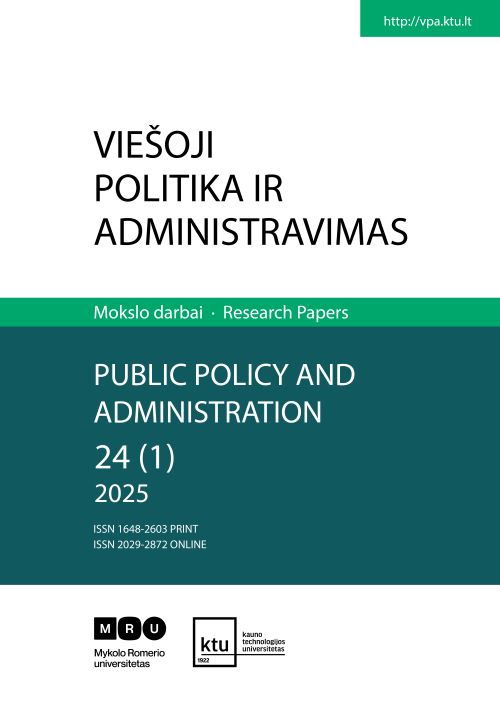About the Journal

Aim. The aim of Public Policy and Administration is to promote scientific research into novel theoretical and practical solutions for the formulation and implementation of public policy. The journal presents analyses of current trends in public administration and proposals for alternative approaches to decision-making and policy implementation in public administration systems, with a particular emphasis on the analysis and critical assessment of public administration processes across different global regions. A further aim is to contribute to the improvement of research methodology in the fields of public policy and public administration. Finally, the journal strives to ensure the effective dissemination of scientific ideas through the publication of relevant studies and conference reviews.
Publication format. Academic articles published in this journal investigate scientific issues in public policy and administration. Priority is given to articles that focus on transformation processes and the management of public sector reforms in different countries, along with those that examine and assess diverse national practices in the areas of public policy formulation and implementation and public administration reform. Some key paths of inquiry include institutional and functional governance issues, public sector digitalization, resourcefulness in public management, the implementation of social policies, the economic processes of the public sector, public service innovation, and the managerial competences and ethical dilemmas of civil servants. The journal also offers reviews of conferences, academic books, and events in the fields of public policy and administration.
Periodicity. Articles are published in English quarterly.
Peer review. Submitted articles are reviewed by applying the double-blind method (the identities of the author(s) and reviewers are kept unknown). Each article is appointed at least two referees (scientists with a degree in the relevant field).
Indexation. The academic journal Public Policy and Administration is included in the Scopus, EBSCO Publishing, Inc., C.E.E.O.L., DOAJ international databases.
This is an open access journal which means that all content is freely available without charge to the user or his/her institution. Users are allowed to read, download, copy, distribute, print, search, or link to the full texts of the articles in this journal without asking prior permission from the publisher or the author. This is in accordance with the BOAI definition of open access.








